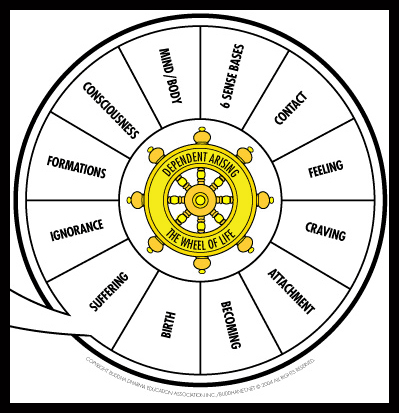
It is commonly accepted that all human beings wish to be happy, but what is happiness, exactly? The framers of the U.S. Declaration of Independence believed that along with life and liberty, the pursuit of happiness was a primordial right of all people, yet they made no mention of nor defined what constitutes the happiness pursued.
For some, happiness is laughter, while for others happiness is tears of joy. There is happiness felt for oneself or for others, happiness of good fortune and even happiness of revenge. There is that of satisfaction, that of desire, and so forth ad infinitum. In short, happiness is by degree and in the eye of the beholder. Satisfaction, sensual pleasure, sexual excitement, exhilaration, hysteria, pride – all such forms and more are happiness for one being or another. Yet for most of us, it seems, happiness does not last.
This brings us back to its pursuit and begs the question: can happiness in fact be pursued at all? Pursuit implies that happiness is something to be caught; something separate from us that can be identified and grasped. Such craving and desire lead to a world of distraction, an endless chase wherein happiness is sought in many forms of entertainment. It might be the entertainment of our own thoughts, wherein memory reaffirms value and we relive moments of past delight or protracted fantasies of future pleasures yet to come. Or, it might be entertainment provided by the thoughts and minds of others such as music, books, movies, plays and even simple conversation. Yet, seemingly pursued and grasped, happiness always slips away like sand slides through our fingers; even if we clench our fists, over time our palms are empty.
Of the four basic emotions, happiness often is the lightest and most airy. As for mad, sad, and scared, the other three, they can turn heavy and thick and sometimes endure for hours, days or even entire lifetimes. Despite our efforts otherwise, happiness dissolves, and this flighty quality surely contributes to its pursuit. The other three emotions come upon us strongly and without chase; few seek after sadness, after all. If anything, we try to avoid the difficult three by pursuing the more favorable one, namely happiness. Might happiness be best defined as the absence of the other three emotions? Not likely, as life without the full range of feelings would be flat and characterless, would it not? Without emotional contrast, could we recognize happiness at all?
That which we conventionally call happiness may not be, in fact, true happiness. Perhaps true happiness is just pure awareness of being, and tearful joy, hysterical laughter, enjoyment, feelings of pleasure and so on – are just various mental elaborations, the side effects of simply being present and awake in the moment. By then mistaking these effects for the root cause, we habitually pursue our concepts and myriad elaborations of happiness as if through their replication happiness can be continuously sustained. Pursuing happiness is hard work; no wonder life is so exhausting.
In the eagerness of our pursuit the essential nature of happiness seems to elude us. Much as a confused dog vainly chases its own tail, we all too often spin through life not understanding that for true and lasting happiness we may choose to end pursuit itself.